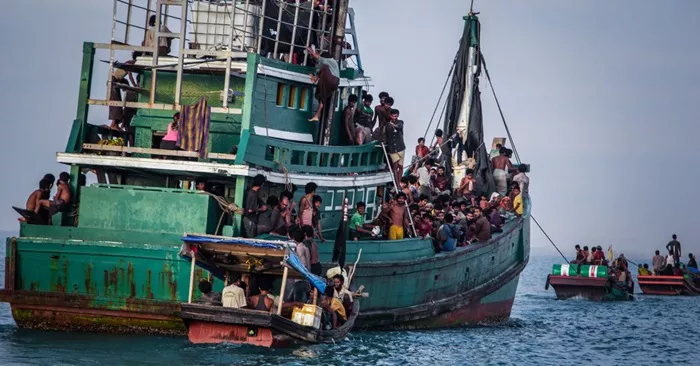When Luca was born two years ago in a Perth hospital, his parents’ lives were upended in unexpected ways. With joy came shock as Luca was diagnosed with cystic fibrosis. Australia, which had been home to Laura Currie and her husband Dante for eight years, then informed them they couldn’t stay permanently. Luca, they were told, could be a financial burden on the country.
“I cried for a week,” said Ms. Currie. “I feel so sorry for Luca. He’s a defenseless two-and-a-half-year-old and doesn’t deserve to be discriminated against.”
Australia prides itself on being a “migration nation,” with a third of its population born abroad. However, for those with disabilities or serious medical conditions, the reality often diverges from this ideal. Australia is one of the few countries that routinely rejects visas based on medical costs exceeding A$86,000 ($57,000; £45,000) over a maximum of ten years. While New Zealand has a similar policy, Australia’s is stricter.
The government justifies this policy as necessary to control spending and protect citizens’ healthcare access. While technically these visas aren’t rejected outright, they aren’t granted either. Some applicants can seek waivers or appeal, but the process is costly and time-consuming.
Campaigners argue this is discriminatory and outdated. After years of advocacy, they hope for change with an official review of health requirements currently underway.
Laura Currie and Dante Vendittelli moved from Scotland to fill jobs Australia desperately needed—she’s a nursery teacher and he’s a painter-decorator. They had started their permanent residency application before Luca’s birth. Now, they feel their contributions and taxes paid mean little.
“It’s like we’re here for you [Australia] when you need us, but when we need you, it’s like, ‘Nope, you cost too much. Go back to your own country.’”
Australia has a history of strict immigration policies. The country has used offshore detention centers for asylum seekers and only abolished the “White Australia” policy in the 1970s. The disability and health discriminations, dating back to 1901, remain. Jan Gothard, an immigration lawyer, noted, “We still treat people with disabilities as we did in 1901 and think they’re not welcome in Australia.”
Gothard is part of Welcoming Disability, a group pressuring for legal reform. Surprisingly, Australia’s Migration Act is exempt from its Disability Discrimination Act. This means that regardless of how long one has lived in Australia, having private health insurance, or the ability to pay for care independently, those deemed a financial burden will fail the health requirement.
Official data indicates that 99% of visa applicants meet the health requirement, yet 1,779 failed between 2021 and 2022. Immigration Minister Andrew Giles, who declined an interview, mentioned that affected children born in Australia can apply for ministerial intervention, which he has positively influenced in some cases.
However, families find the process gruelling. Mehwish Qasim and her husband, who fought to stay in Australia for their son Shaffan, describe the ordeal as exhausting. Shaffan was born with a rare genetic condition and requires constant care. The Qasims, originally from Pakistan, intended to return home but Shaffan’s health made this impossible. After eight years of struggle, they were finally granted permission to stay in 2022.
Laura Currie and her husband refuse to give up. They hope their roles in Australia will help win their appeal. If they lose, they’ll have 28 days to leave the country. Luca’s case hinges on a drug, Trikafta, which he may not even be compatible with. However, the projected treatment cost of A$1.8 million puts him over the permissible limit of A$86,000.
While campaigners welcome the threshold increase from A$51,000 to A$86,000, they argue it doesn’t reflect average costs. Government data shows it spends at least $17,610 annually per citizen on healthcare and welfare, totaling over A$170,000 over ten years—double the threshold.
Campaigners also seek the removal of educational support costs from these calculations, which impact families with children diagnosed with conditions like Down Syndrome, ADHD, and autism. Claire Day, whose daughter Darcy has Down Syndrome, has little chance of getting a visa despite having two job offers from Australian police forces.
“If we tell people with disabilities, ‘You’re not welcome here,’ we’re also telling those living with disabilities in Australia, ‘You’re not welcome either,’” said Dr. Gothard.
Social worker Shizleen Aishath was “gobsmacked” by the health requirement. A former UN employee, she planned to return to the Maldives after her degree. However, her son Kayban’s birth complications and subsequent disability made her stay. Despite having private health insurance and not using state resources, Kayban was initially denied a visa. After a lengthy app
Related topics:



















